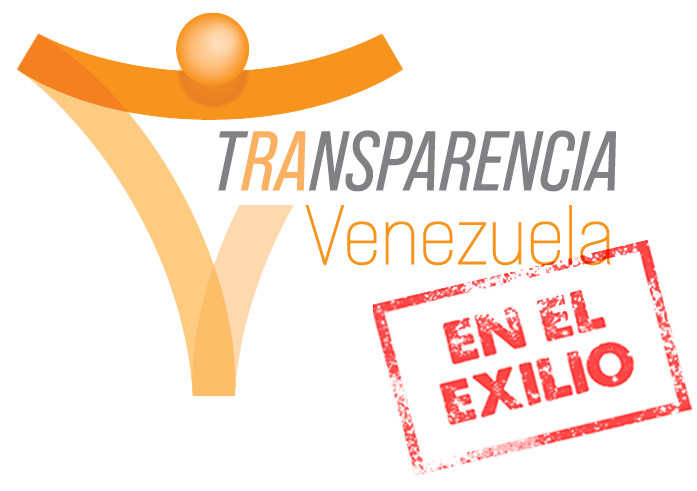Venezuelan crisis is closely related to corruption and poor performance of the 576 State-Owned Enterprises

Since 2016, Transparencia Venezuela with allies from Brazil, Argentina and Mexico, has investigated the business structure of the state as a contribution in the fight against opacity and in favour of a transparent and efficient public management that help Venezuelans achieve a better quality of life.
In the second phase of the investigation, 576 State-Owned Enterprises (SOEs) were inventoried and 160 were specially analysed from four sectors that impact Venezuelans’ quality of life: agri-food, hydrocarbons, mining and metallurgy and public services. 74.4% have public denunciations of corruption or bad practices.
The facilities lack of maintenance, the destruction of management teams, the preponderance of ideology and loyalty to the political model, the opacity, the increase in current spending, as well as the lack of investment and an independent control system are common practices in the SOEs that have caused the destruction of the competitiveness and the fall of the enterprises’ production.
Transparencia Venezuela, 16 November 2018. The severe crisis suffered by Venezuela is intimately linked to mismanagement and corruption in the State-Owned Enterprises (SOEs), a conglomerate that grew rapidly during the presidencies of Hugo Chávez and Nicolás Maduro, and in which features typical of the kleptocratic model prevail, according to the latest investigation of Transparencia Venezuela.
Since 2016, the organization has been unravelling the business structure of the state as a contribution in the fight against opacity and in favour of transparent public management. In the first phase of the 2017 study, 526 state enterprises were counted. In this second phase of 2018, the number of enterprises in which the state is the absolute owner or owns the majority shareholding reached 576.
The executive summary of the second phase of the investigation highlighted that out of 576 state enterprises that have been identified, at least 441 were created or acquired during the presidencies of Chavez and Maduro, through expropriations, confiscations, nationalizations and re-statizations.
The study corroborated that SOEs have consumed huge amounts of resources through budget allocations and additional credits. While until 2003 these enterprises were left with 1.1% of the national budget, by 2015 they required more than 8.6%. Converted to the official preferential exchange rate, during these years the enterprises received more than US$ 500,000 million. That without counting resources assigned via parafiscal funds.
Despite the large sums of money, in the fourth quarter of 2018, out of 576 state enterprises, only 467 are operational, at least for what could be proven.
From the universe of identified SOEs, special attention was placed on 160 belonging to four sectors that are directly linked to the Venezuelans’ quality of life: agri-food (42 enterprises), mining and metallurgy (43), public services (40) and hydrocarbons (35).
We investigated what the enterprises do, what are their objectives, their internal rules or corporate governance, financial and economic results, quality of performance, as well as those responsible for their management. It was also investigated the formal and informal relations between these enterprises, the state and the government (to measure their level of autonomy and independence), and corruption cases that have been publicly denounced.
The study showed that most of these SOEs have negative operating results. They do not cover the needs of citizens and do not contribute with the payment of taxes or royalties to the national treasury. On the contrary, out of 160 enterprises analysed in the four sectors, 74.4% have public denunciations of corruption or bad practices (poor management, falling production and labour conflicts).
Of the key sectors, 21 cases were studied in depth, among which the socialist enterprise Pedro Camejo, Agropatria, Agrofanb, Corpoelec, Cantv, Hidroven, Pdvsa, Pequiven, Sidor, Ferrominera and Minerven stand out. Large unfinished projects were also taken into account, such as the Tuy IV System and the Tocoma dam.
A decade of decadence
The investigation also concluded that the key year in the decline of state enterprises was 2008. The wave of expropriations initiated shortly before by Hugo Chávez and the implementation of the so-called First Socialist Plan, caused that most of the enterprises that produce goods and provide services began to collapse. In 2018, a decade later, this deterioration seriously compromises the lives of Venezuelans.
In 2008, the first evidences of the agri-food crisis were given as a result of the economy mismanagement, the discretionary use of resources, legal insecurity and the growing presence of state enterprises in agriculture and agro-industry, the report showed.
That same year the production of liquid steel began to decline, just after the expropriation of Sidor and with a bad management in inexperienced hands. As a result, the country has shortages of steel bars and other products. The situation affects the oil, metalworking, packaging and household appliances industries.
Also in 2008, electric service began to show a deficit of electric power and there was an accelerated increase in interruptions. All this happened a year after the creation of the state-owned Corpoelec, which has a monopoly of the entire sector.
The report adds that the fall in oil production, for which PDVSA is directly responsible, impacts the gas and petrochemical sub-sectors and, therefore, the management of other state enterprises such as Pdvsa Gas, S.A. and Pequiven.
Transparencia Venezuela’s investigation also emphasized that the facilities lack of maintenance, the destruction of management teams, the preponderance of ideology and loyalty to the political model, the opacity, the increase in current spending, as well as the lack of investment and an independent control system are common practices in the SOEs that have caused the destruction of the competitiveness and the fall of the enterprises’ production.
Following the kleptocratic model
Transparencia Venezuela warns that a system with kleptocratic features has been established in the country and State-Owned Enterprises do not escape from it. It is a government model focused on the enrichment of the managers themselves, who exercise a monopoly on decisions, resources and power, without being accountable and in which a high level of impunity prevails.
The study shows that the kleptocratic model has been strengthened in the SOEs through the use of enabling laws and emergency decrees signed by presidents Chavez and Maduro. The instruments have made it possible to make large purchases without complying with bidding processes, which has encouraged acts of corruption from which public officials, intermediaries and private supplier companies have benefited.
It highlights that the electrical emergency decree, approved by President Chávez in 2010, allowed Corpoelec, Pdvsa and the Ministry of Electric Power to purchase equipment without bidding. The investigation determined that between 1999 and 2014, US$ 37,691 million were allocated for 40 projects for the purchase of equipment and construction of facilities; a surcharge of US$ 23,033 million was discovered.
In the SOEs, the lack of control and oversight was detected, since the last two governments made the designation of the same person as regulator and operator a common practice. That is, the referee is also the player. In the oil sector, for example, Rafael Ramírez and Eulogio Del Pino served simultaneously as energy and oil ministers and presidents of Pdvsa. Currently, General Manuel Quevedo is the one who fulfils both functions.
Another features of kleptocracy present in SOEs are opacity and discretion. The vast majority of SOEs do not publish their budget, share structure, organizational structure, salaries of public employees, powers of the entity, strategic plans, operating plans, rules governing them, public contracts, balance sheet and financial statements.
Since 2015, the ministries to which the SOEs are attached ceased to publish their annual accountability report, and the management of the resources assigned to the ministerial bodies has also been characterised by an increase in opacity and arbitrariness in public information that is passed on to the citizens.
Out of 576 SOEs surveyed, only the operation of 512 could be verified and in 342 of them, the president, the directors and the board of directors could not be identified.
The study insists that opacity policies of SOEs and the ministries to which they are attached are contrary to the right of everyone to «access documents of any nature that contain information whose knowledge is of interest to communities or groups of people», as established in article 28 of the Constitution, among others.
From the barracks to the enterprises
In the structure of the entrepreneurial state, the presence of a voracious sector of the Bolivarian National Armed Forces (FANB) was also evident. The most important SOEs have been run by a minority sector of the FANB politicized and characterised by its voracity in the appropriation of public resources.
The study revealed that out of 576 state companies, 76 have a military as the highest authority. The SOEs in which this sector has been most involved are those related to agri-food, hydrocarbons, electricity, drinking water and sanitation and mining and metallurgy, just those that have managed more resources.
Other kleptocratic features detected in the SOEs are: nepotism and cronyism, foreign influence; monopoly of decisions, resources and power, anarchic permissiveness and presence of national and international mafias, as well as impunity.
Information open to the public
As part of the second phase of the investigation, Transparencia Venezuela strengthened and updated the directory on open data of the State-Owned Enterprises, which is available on the website www.vendata.org
This time the amount of information that had been collected since 2016 on each enterprise, including national, international and other, owned by regional governments was increased.
This year, it was established the change of the enterprises’ affiliation that belonged to the Ministry of People’s Power for the Basic, Strategic and Socialist Industries and the Ministry of People’s Power of Ecological Mining Development, to the recently created Ministry of Popular Power of Industries and National Production run by Tareck El Aissami, and it was registered the change of affiliation of the hydrological and related services enterprises that belonged to the Ministry of People’s Power for Ecosocialism and Water to the new Ministry of People’s Power for Water Care.
In the second phase, four new fields were also included: «Presence of the military on the board of directors», «Military as the highest authority», «Presence of women on the board of directors» and «Woman as the highest authority».
All the information of the second phase of the State-Owned Enterprises study is available at www.transparenciave.org. There you can read and download the executive summary, the reports of the sectors investigated, the case studies and the files of the enterprises in each sector.
For Transparencia Venezuela, which has historically fought against corruption and in favour of a free of opacity public management, it is a duty and a commitment to the country and Venezuelans to disseminate the findings of this investigation and thus claim the citizen’s right to have access to information on the performance and results of all state entities. The organisation hopes that this investigation will be a contribution in favour of transparent and efficient public management that will help Venezuelans achieve a better quality of life.
